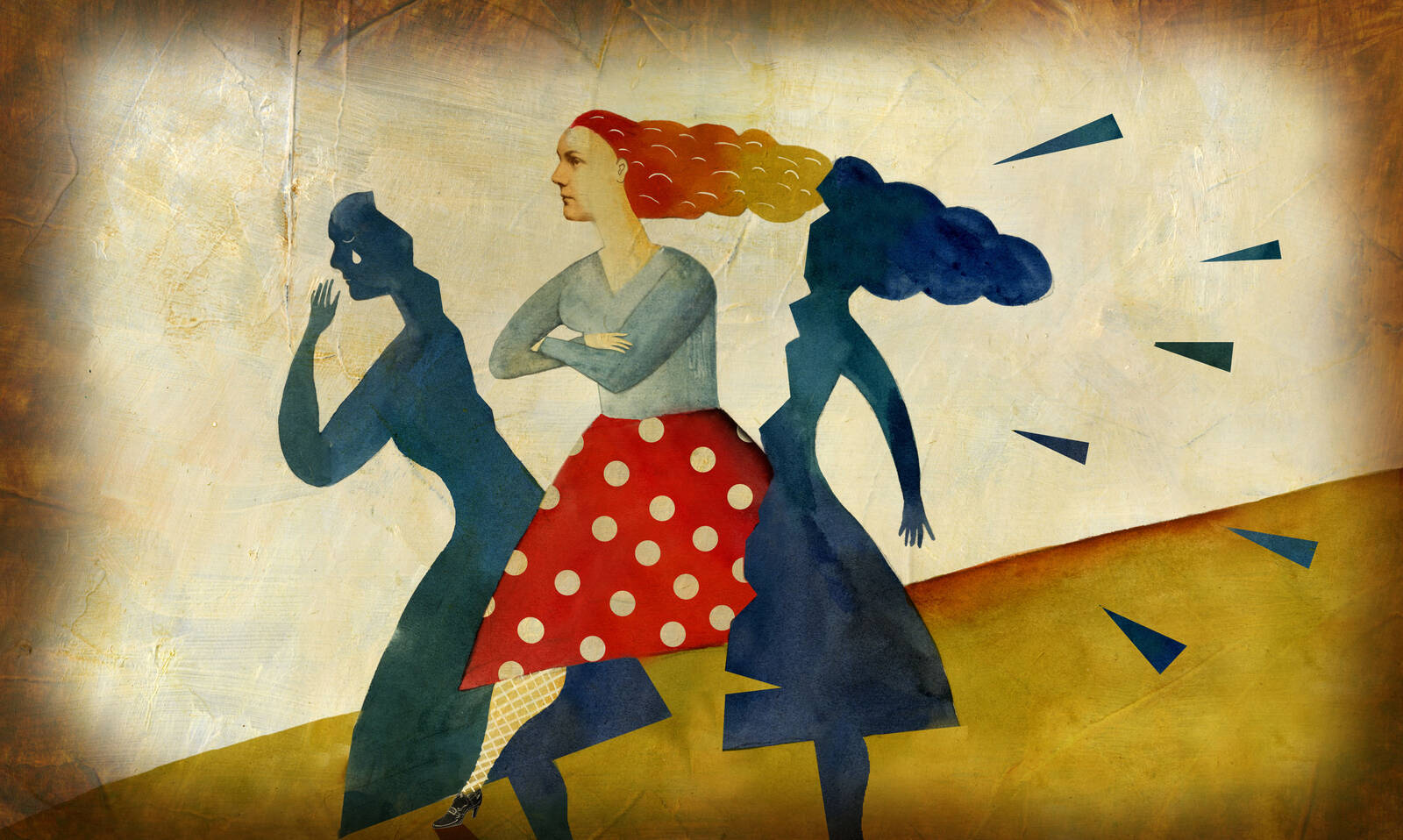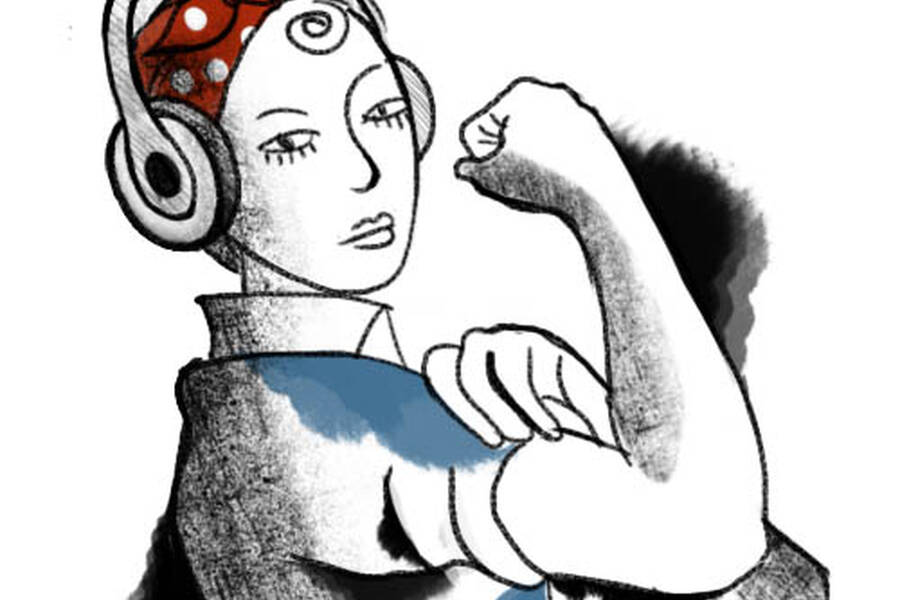
Yevgenia Nayberg
Let’s say you are going through a difficult divorce that is hurting your ability to focus at work. You know your boss endured her own difficult divorce several years ago. So you confide in her, expecting both empathy and advice. After all, she has been in your shoes. Good thinking, right?
No. It turns out she is exactly the wrong person to go to for compassion.
People who endured a hardship are less likely to show compassion for someone struggling with that same hardship, compared with people with no experience in that particular situation, according to new research from the Kellogg School. And yet the research shows we tend to assume just the opposite, seeking comfort from people who are unlikely to offer it.
This has implications for leaders who are sought out for advice, for the advice-seekers themselves, and for training programs that try to create empathetic workplaces.
“We often just trust that our emotional reactions will guide how we should respond. This work suggests that … we may be callous.” —Loran Nordgren
“There are all these empathy training programs being offered that rely on the notion that to understand someone, you need to walk a mile in their shoes,” says Rachel Ruttan, a Kellogg School doctoral student. “But in order to train and foster empathy, we really need to understand that the dynamics of it are complicated. And maybe your intuition about it is incorrect.”
Empathy in the Workplace
The research by Ruttan, Loran Nordgren, an associate professor of management and organizations at Kellogg, and Mary-Hunter McDonnell of the Wharton School at the University of Pennsylvania grew out of previous work by Nordgren exploring “empathy gaps.” These gaps refer to the difficulty people have recalling emotional distress once an experience is over. What, he wondered, are the consequences of these empathy gaps in terms of how much compassion someone is willing to give another person enduring the same distress?
To find out, the researchers designed a series of experiments that gauged people’s compassion for others.
In one experiment, they asked participants in a polar plunge—an outdoor swim in frigid temperatures—to volunteer as research subjects. The participants were approached before their swim. Those who were willing to volunteer were divided into two groups—they either took a quick questionnaire before their swim or within a week after plunging.
Participants in both groups read about a man named Pat, who like them had decided to take a polar plunge. Yet, when it came time to run into the water, Pat balked and did not complete the plunge. The participants then reported their levels of compassion and contempt toward Pat.
Those who completed the questionnaire after taking the plunge were less likely to be compassionate toward Pat and more likely to feel contempt for him compared with participants who completed the study before their own plunge.
Another study looked at compassion in the context of unemployment. More than 200 people who signed up online to be research participants read a story about a man who is unable to find work and begins selling drugs to earn money. The participants then answered questions about the level of compassion they felt for this man.
Participants who themselves had previously been unemployed were less likely to show compassion for the man than those who were either currently unemployed or had never been unemployed. A third study, which looked at how people who had previously been bullied felt toward someone failing to cope with bullying, showed similar results.
The researchers believe that the combination of people forgetting how difficult a situation actually was and knowing that they themselves managed to get past it makes it hard for people to offer empathy to those in the throes of their own difficulties.
A Quick Fadeaway
All of this runs counter to our intuition, which presumes that someone who has experienced a hardship—be it freezing water or schoolyard taunts—will be your advocate if you are struggling to endure it yourself. But empathy gaps form fast.
“It was surprising to me how quickly you lose access to those memories of your own emotional experience,” Ruttan says.
To get at this counterintuitive aspect, the researchers built off their bullying scenario. They asked participants which teacher would be less likely to negatively judge a violent outburst by a bullied teen: a teacher who had endured bullying as a teenager or one who had never been bullied.
Ninety-nine of the 112 participants said the teacher who had endured bullying would be more compassionate to the teen. The trend held true both among participants who had themselves been bullied and those who had not.
“Get Outside Your Own Head”
These findings have clear implications for business leaders. Take the example of the boss whose employee is seeking advice during a divorce.
“We often just trust that our emotional reactions will guide how we should respond,” Nordgren says. “This work suggests that, in a situation like this where someone is struggling to deal with a situation that we got through earlier, we may be callous.”
His advice is to “get outside your own head,” meaning ask yourself how upset the person seems to be—not how upset you remember being when you were in his shoes. Nordgren calls it “a kind of perspective-taking exercise.”
As for the employee who is seeking the advice, he would be wise to pause before immediately seeking compassion from someone who has had a similar experience. He might, in fact, get a better reaction from someone who has never gone through the same ordeal.
Companies, too, should take note. Training programs for fostering empathy may be predicated on the wrong notions. Mentorship programs, which often pair up people from similar backgrounds or experiences, may also need to be reevaluated.
Flipping the Switch
The research only focuses on compassion among people who successfully endured a hardship. Perhaps individuals who failed in the face of a particular adversity are more likely to offer empathy to those currently failing? The researchers hope to test this idea.
Another question the researchers would like to explore is, as Ruttan puts it, “can you flip the switch back and reignite compassion for these individuals?”
Maybe compassion can be reignited by asking people to think about how they, themselves, were helped by others and did not just rely on their own strength or ability in getting through a difficult time.
Or perhaps simply keeping this research in mind can change behavior. Nordgren says a colleague of his approached him recently after some students complained to him about how much academic pressure they are under.
“He said, ‘my first reaction was, come on, pull yourself together,’” Nordgren says. “Then he said, ‘I was thinking about your work and when I really thought hard, I remember how much I freaked out about this as well.’”
Ruttan, Rachel L., Mary-Hunter McDonnell, and Loran F. Nordgren. 2015. “Having ‘Been There’ Doesn’t Mean I Care: When Prior Experience Reduces Compassion for Emotional Distress.” Journal of Personality and Social Psychology. 108: 610–622.
